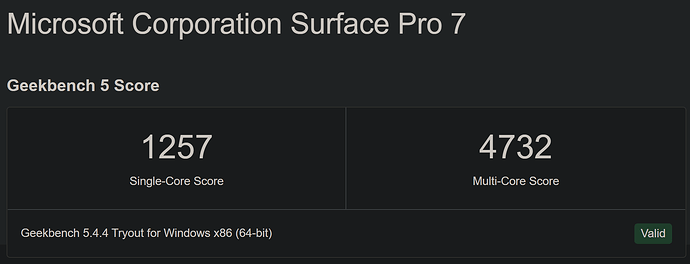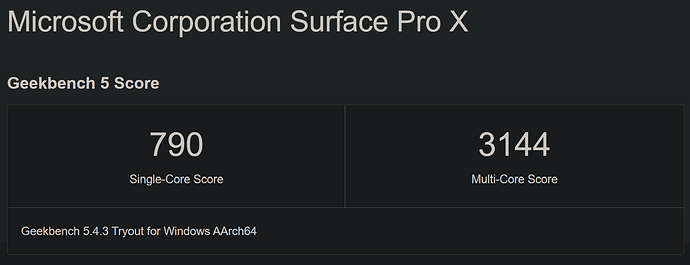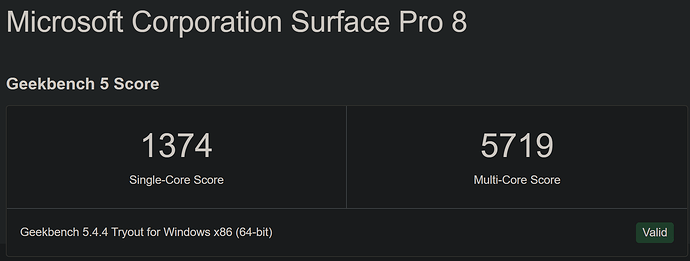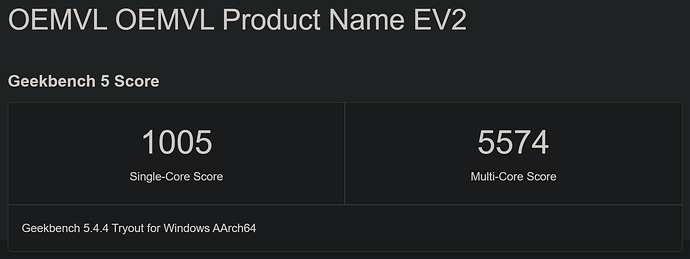Highest marks. Well played @RT545. Perhaps the most important lesson we learned from Jobs the TerrIble is “Forget about the NEEDS of the many, let’s create the WANTS of the many!”
I’ve had a sick stomach every time someone (looking at you Thurrott) championed PWA because it harkens back to “web apps” on the first iPhone - what a disaster!
…and show them what they WANT even when they didn’t know they HAD a want…
That was before the HEGEMONY of HTML5 arose. And mega-multi deca-octa core processors, and 12GB of RAM on a PHONE. It’ll all work now, right? RIGHT? Surely taking those pesky headphone jacks off and locking the batteries in will make it better? Anyone? Hello? ![]()
But webpages are so much more than they were. Now they can be full fledged applications in so many scenarios. Sure, they won’t be efficient for high graphics intense gaming, but they are more than enough for what most basic apps are.
Actually, yes. PWAs could work for most cases on most apps now. There’s been addition of native access for a lot of things in recent years that make them feel like a native app more than ever. The reason it’ll likely never happen, or at least not for a long time, is because of the first web apps that were so garbage. No one trusts them now.
While they are good enough nowadays, they almost always are still worse than a native app.
The only program that I can think of as decent is Visual Studio, and even that performs worse than if it were native.
I see the appeal of webapps, but it’s still laziness.
I think it strongly depends on the scenario. I work for a very large company who employs thousands of developers. We can afford to have teams for each native environment for our apps. Smaller companies who have just a few devs can’t really afford separate teams who know Java, Swift, C#, etc. If their product is one that doesn’t need the native access, and isn’t going to experience slow downs, then a PWA might be the right call for them. It also allows them to keep up with trends for updates faster across products, where something like using React Native requires them to wait for FB to provide updates first.
And, correct me if I’m wrong, but isn’t Spotify basically a PWA? It’s pretty robust for being all web based.
But I do agree, none are as good as a native app can be, but that doesn’t mean if they don’t need the native performance, that they’re necessarily lazy or a bad idea.
Yeah, Spotify is a great example of a PWA done properly. The problem we’ve seen is that too many were created as the path of least resistance with little thought to how the app is used in the real world.
In other words the guidelines should be that it’s either lightweight to begin with like Spotify where all it really needs to do is control the stream for Spotify’s servers, or the example of SalesForce where it wouldn’t be practical to put the “heavy lifting” on the client side.
TLDR as is often the case, most PWAs have been created as the cheaper/easier option
After wading through this thread (love the lawyer metaphors) it looks like it’s the perfect place to post the news of the next Surface WOA device running Qualcomm’s 3rd generation 8cx device that is rumored to reach I7 frequencies. If this is not in the Go4, some heads should roll.
Now, this looks interesting. It won’t keep up with the Alder Lake Surface Pro 9 that is probably coming the end of this year, but it is going to breathe new life into the Surface Pro X. I have a hunch this may be revealed once Android app support goes out of release preview, and release preview for Android apps begins sometime in February. So going again on a hunch, Android app support will go into full release with the spring update which is typically a time around when new Surfaces also come out. Do we suspect a spring release for the Surface Pro X² or Surface Go X?
This really is intriguing. One thing I like is that for a change, the blogs that have reported this rumor are for the most part also pointing out some of the limitations of Geekbench compared to real world computing tasks. eg. It’s about the only “benchmark” that can be run on almost anything, but also is at best a mixed bag real world.
And let’s not forget that Geekbench was also the source for the original WOA Surface Pro chips which claimed “core i5 levels of performance” We all know here how that played out.
BTW: We think the chip that might matter much more, to the point of being the make-or-break point for WOA is the Gen 4 Qualcomm chip coming possibly late this year which will be the first to bear the fruit of the Nuvia acquisition.
That’s the one that I will be paying close attention to.
PS: Definitely rumor, but we also hear that the first system to have this Gen 3 chip from MS will be a follow up to the Surface Laptop Go and not the Go 4
Is Apple cheating the benchmarks to juice their iPP M1 GB5 scores above this chip and the i7-1165?
QC Ver 3 …1005/5575
i7-1165…1376/4494
iPad Pro M1…1706/7219
If not - APPLE, LET MY M1 GO! (to a MacPad)
No. probably not. What they are most definitely doing is cherry picking the ones that are most favorable to them. Something they have been doing since the days of the “bakeoffs” between the PowerPC and Intels 486 and then Pentiums.
And thus my ongoing crusade against the abuse and misrepresentation of benchmarks.
PS: FWIW in our test the latest M1 chips and Intel’s Alder Lake have the M1 chips come in roughly mid way between the latest core i7 and core i9 chips in aggerate with some fairly large swings on both platforms on any given test.
One thing that Apple has hands down though is power efficiency across the board
- That’s pretty impressive in itself for their first run chips…
- NO ONE in the Intel/AMD/QC camps wants to talk about “power per watt”
And here’s the thing. In my personal opinion it has at least as much if not more to do with Apple’s ability to optimize the OS and hardware mutually for each other. That advantage simply can’t be overstated IMHO
Windows for better or worse has to focus far more on general compatibility.
Which makes me wonder what MS could do if they really doubled down on a custom ARM configuration
Yes please!
If this chip can get anywhere near the performance of the M1s, I would be very excited for a Surface Go. The size is perfect for what I want, it’s just always lacked the power. Add in a Slim Pen 2, and you’ve got the perfect companion device for me. I feel like the Surface Laptop, with lack of convertible screen, is silly to even include the pen, and it’s just not an interesting device to me. I hope the rumors are wrong in this case.
True. Though I will say that the Surface Pro X still was significantly slower than the Surface Pro 7 when it came out in Geekbench, some ~34% slower in multicore and ~37% slower in single core performance. Adding WOA’s x86 emulation layer only compounded that performance gap widening it ever further. Now, we are seeing comparable multicore performance (<3% slower, so within margin of error) while there is still a lag (albeit minorly improved) in single-core performance (~27%). All in all, though, Qualcomm is catching up though it will be a very brief moment of parity in the multicore performance realm seeing that Alder Lake as much as doubles multicore performance gen-over-gen.
Surface Pro 7 i7:
Microsoft Corporation Surface Pro 7 - Geekbench Browser
Surface Pro X:
Microsoft Corporation Surface Pro X - Geekbench Browser
Surface Pro 8 i7:
Microsoft Corporation Surface Pro 8 - Geekbench Browser
Surface Pro X Successor:
OEMVL OEMVL Product Name EV2 - Geekbench Browser
I would like to continue the trend from the old forum and continually whine about also adding AMOLED to these. I’d be immediately on board if MS gave us an OLED Surface Go with fast ARM chip. Provided they don’t plan on giving up on WOA the year after.
This is always the risk with MS. I had a Windows phone that I loved. The OS was faster and more user friendly than Android or IOS, but MS didn’t know how to market/get apps built. I even bought a second, Windows phone when they did a push with their own line, then, what, 2 years later they stopped support? If that? Their original WOA attempt too, that lasted 1 generation. I really hope that Apple has pushed the market forward enough with these that MS can finally commit for the long haul, but I am skeptical.
Without doing any legwork myself to look it up, I’m sure all of those numbers blow away the Surface Go 2 though, and that’s really all I need. I don’t need SP8 performance. I just need not trash performance. Also, 16-32gb ram would be nice.



